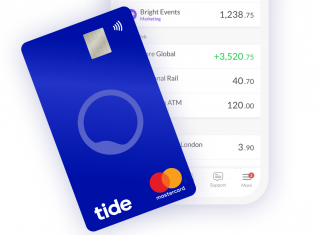Mastercard has made an undisclosed equity investment into Doconomy, a startup helping consumers become more aware of their CO2 impact when making payments.
The investment will help scale the expansion of the platform into additional markets. It also comes as part of an expanded relationship between the two companies.
This new arrangement brings the ability for any Mastercard issuer to offer their cardholder the ability to track and understand their carbon footprint based on purchases they make.
In addition to this partnership announcement, an unnamed US bank and Nordic bank Nordea will now enable its clients to track and measure their CO2 impact.
Doconomy uses the Åland Index, a cloud-based solution which calculates the climate impact of card transactions by using the average carbon footprint of each industry.
Founded in 2018, Doconomy offers digital banking services which help to track and measure CO2 emissions. The account comes with a Mastercard-powered debit card and a mobile app to manage spending.
The app can calculate the carbon impact of transactions and inform a user how they can reduce their footprint – consumers can also access investments which are helping the planet.
Mastercard divisional president for UK, Ireland, Nordic and Baltics Mark Barnett said, “Addressing climate change is bigger than any one company. This is an important next step to continue progress and move from promise to action. We’ve made commitments to manage our own impact through science-based targets and renewable energy. Now, we’re helping to accelerate the action our cardholders can take every day.”
Eco-FinTech platforms seem to be a new trend. Challenger bank bunq released a Green Card which will see one tree planted for every €100 a customer spends.
Copyright © 2019 FinTech Global











